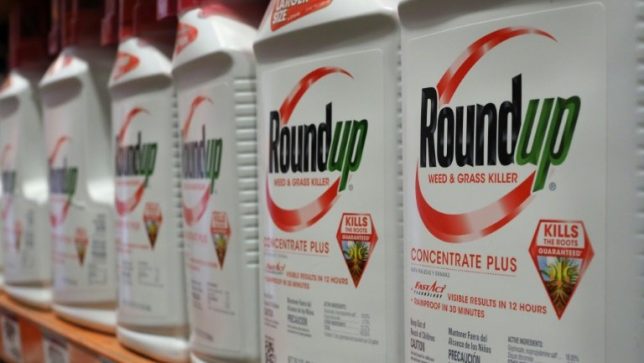New York Attorney General Letitia James last week announced a settlement with Bayer CropScience LP (Bayer) and Monsanto Company (Monsanto) for allegedly making false and misleading claims regarding the safety of certain Roundup® consumer weedkillers.

Bayer and Monsanto repeatedly claimed in advertising that Roundup® consumer products containing the active ingredient glyphosate were safe and non-toxic without adequate substantiation. These claims violated state laws against false and misleading advertising, and also breached a previous settlement the Office of the Attorney General (OAG) reached with Monsanto in 1996, in which Monsanto committed to stop making unsubstantiated claims regarding the safety of Roundup® products that contained glyphosate.
“Pesticides can cause serious harm to the health of our environment, and pose a deadly threat to wildlife, including pollinators and other species vital to agriculture,” said Attorney General James. “It is essential that pesticide companies — even and especially the most powerful ones — are honest with consumers about the dangers posed by their products so that they can be used responsibly. Once again, Monsanto and the company’s current owner, Bayer, made false and misleading claims about the safety of their products, but we will not allow them to get away with endangering our environment. My office will continue to protect the health of New York’s environment by ensuring our laws are respected and followed.”
Roundup® is among the leading brands of weedkillers in the United States. For many years, glyphosate was the most common primary active ingredient in Roundup® brand products. Scientific studies have determined that some formulations of Roundup® brand pesticides may be toxic to wildlife, particularly pollinator species such as honeybees and butterflies, as well as fish, amphibians, and other aquatic organisms.
According to a 2022 report of the Empire State Native Pollinator Survey, at least 40 percent — and as many as 60 percent — of pollinator species native to New York are at risk of disappearing from the state, potentially threatening the future growth of crops and wildflowers statewide.
Glyphosate Box
Glyphosate Residue Free Certification for Food Brands – Click Here
Test Your Food and Water at Home for Glyphosate – Click Here
Test Your Hair for Glyphosate and other Pesticides – Click Here to Find Our Your Long-Term Exposure
In 2020, Attorney General James began an investigation into whether Monsanto, and its current owner Bayer, were again engaging in false advertising of their Roundup® products, in violation of Monsanto’s 1996 settlement with OAG. The investigation found that a number of claims made in advertising, including promises that Roundup® products “won’t harm anything but weeds,” and “do not pose a threat to the health of animal wildlife,” were not adequately substantiated.
The investigation also revealed that the companies made claims that implied Roundup® products were safer and less toxic than dish detergent and soap, a practice Monsanto had agreed to cease in the 1996 settlement. Following the investigation, Attorney General James concluded that the companies’ claims about these products violated New York laws against persistent business fraud and false and misleading advertising, and breached Monsanto’s obligations under the prior settlement.
The OAG’s investigation and settlement are related to the environmental impacts of Roundup® products; the impact of Roundup® products on human health is currently the subject of ongoing nationwide private-party litigation.
As a result of the settlement announced, Bayer and Monsanto will pay $6.9 million to OAG, which will be used to prevent, abate, restore, mitigate, or control the impacts of toxic pesticides such as those containing glyphosate on pollinators or aquatic species. The specific programs and projects that will be supported with these funds have yet to be determined, but may include research, monitoring, and education, as well as habitat management, restoration, and enhancement.
The settlement also requires Bayer and Monsanto to immediately remove or discontinue any advertisements that represent Roundup® consumer products containing glyphosate as safe, non-toxic, harmless, or free from risk to pollinators and other wildlife. Bayer and Monsanto must also direct distributors and retailers of these consumer Roundup® weedkillers to cease the dissemination of any marketing materials that contain these allegedly false representations. Per the agreement, Bayer and Monsanto will submit an annual report and certification of compliance with the agreement to OAG, and the companies will be subject to a $100,000 penalty for each failure to uphold the obligations of the settlement.




















1. Any person who violates their terms of parole risks being sent back to jail. Why did Bayer/Monsanto not be charged with such illegality and imprisoned.
2. This settlement is such a measly amount of fine for this mult-billion dollar corporation that it is meaningless and insulting. That amount of money would solve all my problems as well as help my family and organizations I support but it is nothing for the enormity of damage from this toxic corporation that consistently lies and whose goal is the complete control of the world’s food supply–their statement!
Agreed with Tanya!! The amount of the fine is, so ridiculously small for all the damage done to our environment globally. Making false claims and telling us what ever they need to further pollute our planet, and do it knowing the fines will be within there budget.
It is not enough to be simply fined. This product must be removed, and any subsequent replacements, that would be made available, that are damaging to our environment.